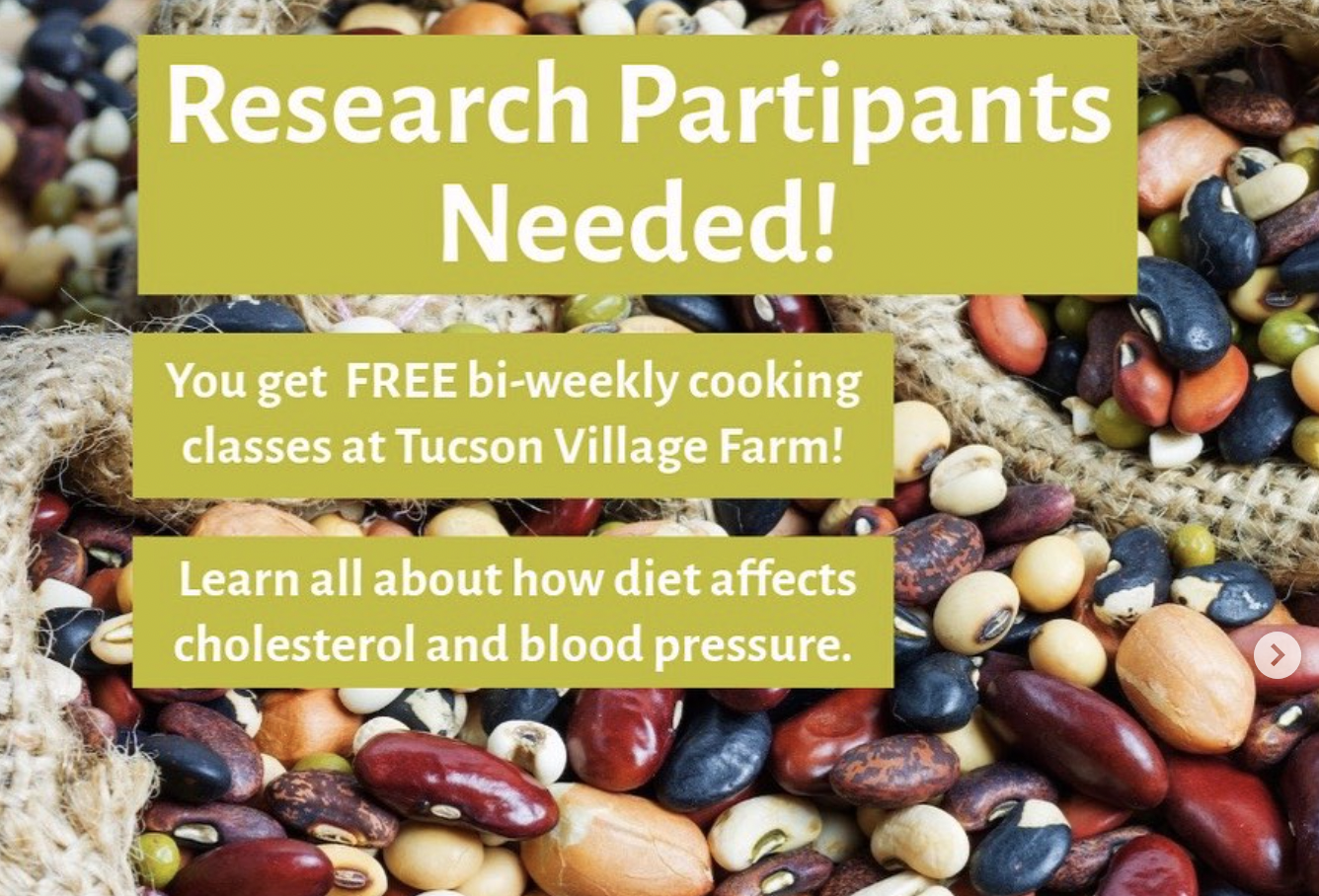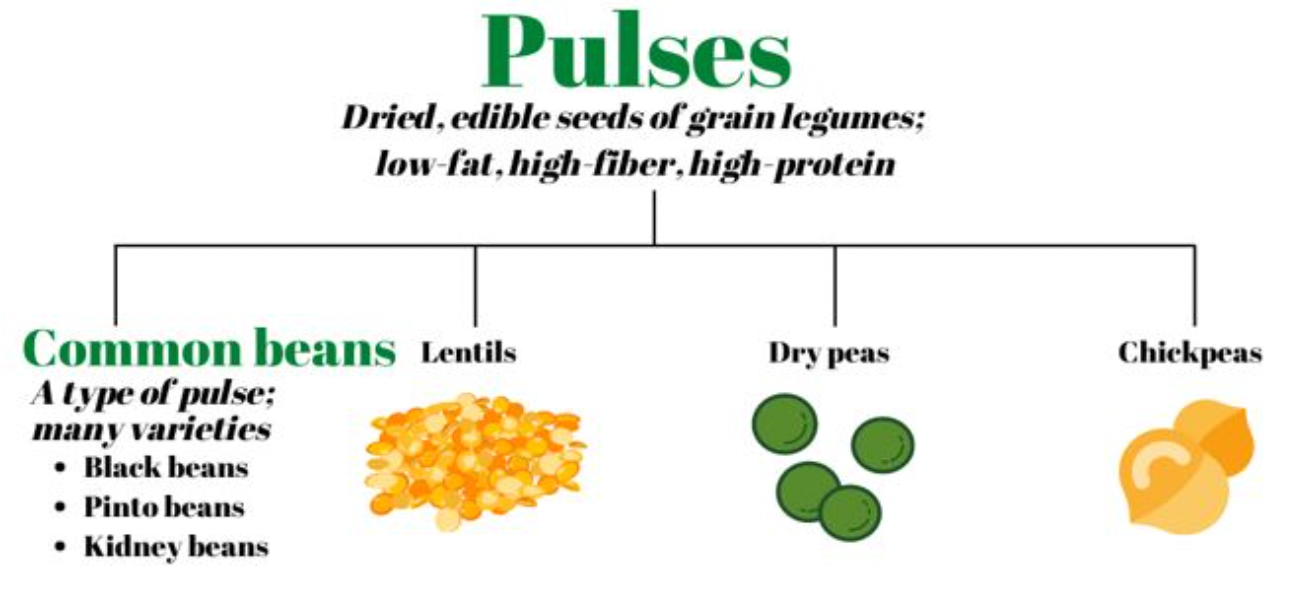Tucson Village Farm seeking volunteers for “Cool Beans” research study
The UA and Tucson Village Farm are recruiting volunteers for a study to investigate whether doubling daily pulse consumption, including beans, lentils, and chickpeas, can improve cholesterol, blood pressure, and overall heart health.

Tucson Village Farm and the University of Arizona are looking for volunteers to help study the impact of beans on cholesterol, blood pressure and overall diet.
The Cool Beans research study, officially called “Effects of Increasing Pulse Consumption on Cardiovascular Disease Risk Factors,” can accommodate up to 180 participants and still has plenty of spots to fill, according to Principal Investigator and UA Professor Ken Wilund.
Pulses are a type of legume and include beans, dried peas, lentils and chickpeas. They’re usually high in protein and low in fat.
Wilund, who studies exercise and nutrition research, primarily in patients with kidney disease, said proper nutrition is critical to both preventing and managing kidney disease, particularly when it comes to plant-based food, including pulses.
The US Department of Agriculture recommends a daily intake of 1.5 cups of pulses. The Cool Beans Study is looking to determine if eating more can help improve blood pressure, cholesterol and more.
The study proposed that by doubling the recommended intake of pulses to three cups a day, participants could experience benefits that also include improved heart health and kidney function.

Participants in the study will be randomly assigned to a treatment group for the duration of the 12-week program and attend a cooking class at the farm every two weeks.
Each class will last around one hour and will teach participants how to prepare healthy meals using pulses.
In addition to learning new skills, participants will receive nutrition information and recipes that follow MyPlate guidelines.
Some participants will also receive pulses to take home and incorporate into their weekly meals.
Wilund said that a key component of the study is the data collection. Participants will be asked to track their dietary intake for a 3-day period both before and after the 12-week study. They’ll also participate in baseline testing and submit fasting blood samples at the beginning and end of the study, to measure cholesterol, blood glucose and blood pressure.
Participants will also be asked to complete surveys about their physical activity, and their satisfaction with both their lives and their food choices.
The study is estimated to last a few years, with several different cohorts throughout the duration. The first cooking class is Wednesday, with about 30 people already signed up, and the final cooking class will take place in May.
The results of the study will eventually be presented at different medical conferences as well as published in a peer-reviewed medical journal.
Wilund is director of the UA’s School of Nutrition Sciences and Wellness and a graduate of the University of Maryland. He stepped into the role of principal investigator of the study following the departure of another faculty member.

Wilund first heard about the Tucson Village Farm and the role it plays in the community during his initial interview with the UA.
“It really was one of the attractive features that played into me accepting the job here at the UA,” Wilund told Tucson Spotlight.
Tucson Village Farm is a cooperative extension of the UA that operates a seed-to-table program that connects young people to healthy food systems, teaches them how to grow and prepare fresh food and empowers them to make healthy life choices.
Findings from the UA’s research are shared with the farm to help expand their knowledge.
While the UA’s Cool Beans study is primarily focused on the ability of legumes to address health issues sometimes associated with overconsumption, developing countries have been using them for decades as a solution to food insecurity. Some countries in Africa use beans to address starvation and malnutrition, according to the Associated Press.
The Ugandan government and agriculture experts are touting a fast-maturing and high-yield “super bean” that they say can feed hunger-prone parts of Africa, the AP reports
The bean has proven to be so popular that the U.N.’s Food and Agriculture Organization contracted with a commercial producer to supply 21 tons for distribution to South Sudanese refugees to plant. The hope is that refugees will begin to grow their own food instead of relying on handouts, which can become scarce amidst funding shortages.
The recruiting period for the UA’s Cool Beans study ends Friday. Anyone Interested parties can apply here.
Abbie Andrus is a University of Arizona alum and Tucson Spotlight reporter. Contact her at asandrus@arizona.edu.
Tucson Spotlight is a community-based newsroom that provides paid opportunities for students and rising journalists in Southern Arizona. Please support our work with a paid subscription.




